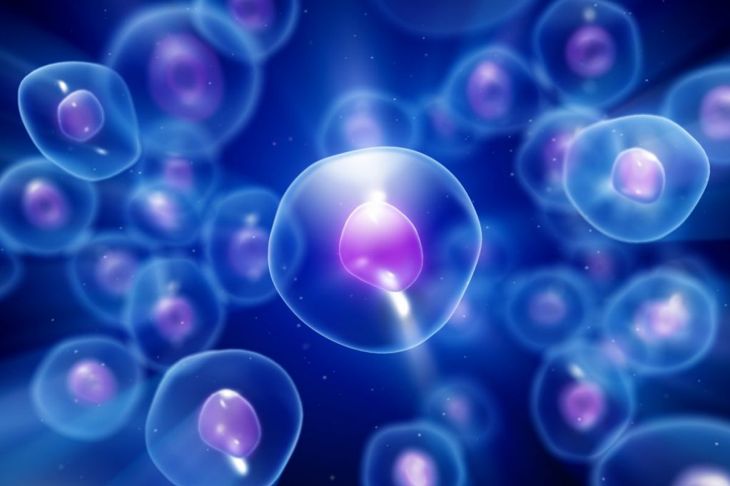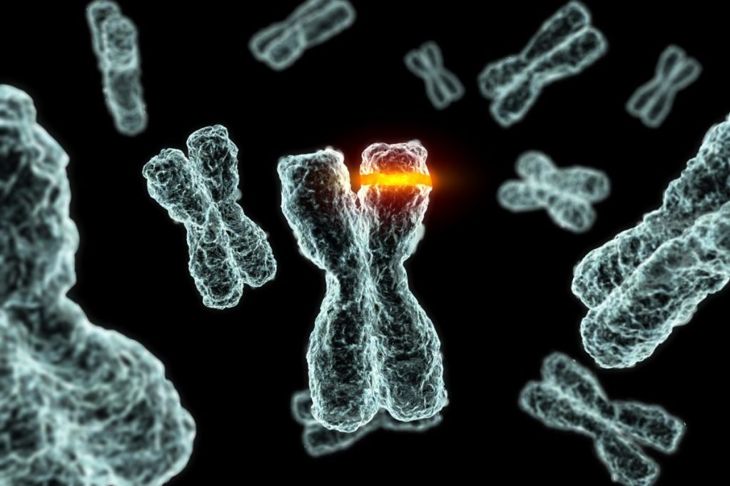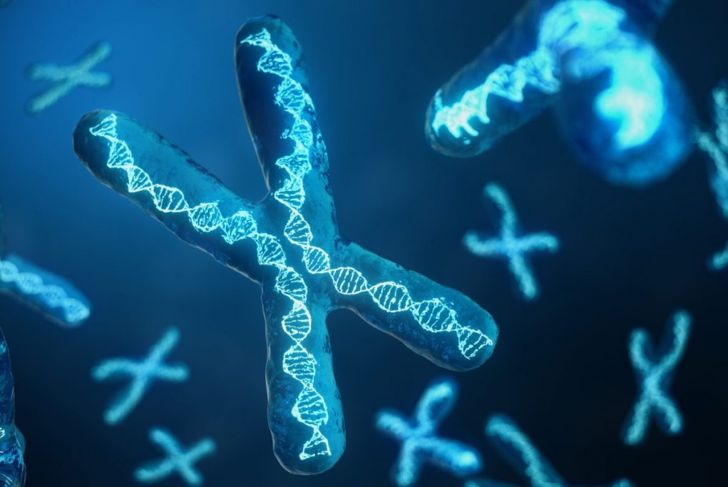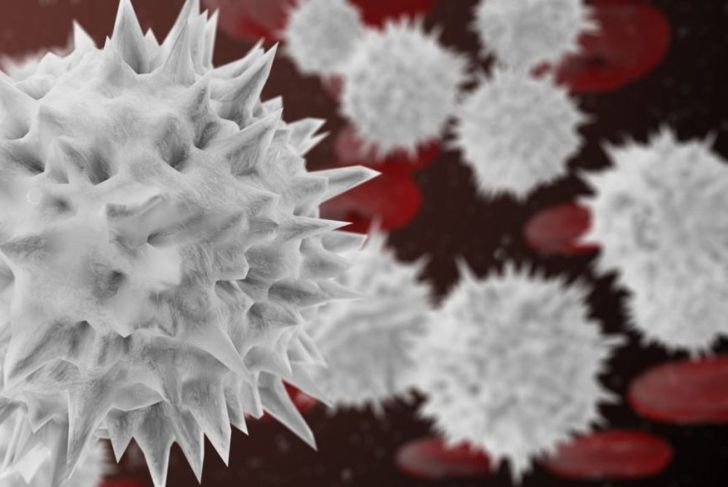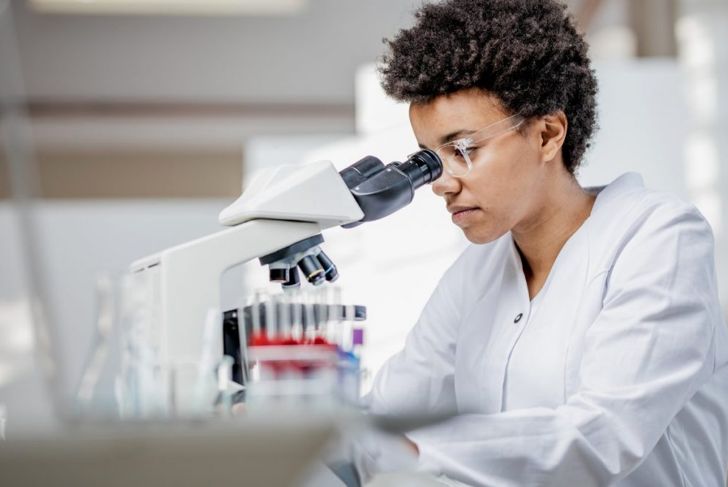Hunter syndrome is a rare, inherited disorder that affects every organ in the body. Officially called mucopolysaccharidosis type II (MPS II), physicians diagnose this condition primarily in males. Historically, the medical community divided Hunter syndrome into two groups, severe and mild. Doctors now view this disease as a continuous spectrum with a wide, varied range of possible symptoms. Some individuals experience severe symptoms, others less severe, but most fall in the intermediate range.
Mucopolysaccharidosis Disorders
Hunter syndrome is one of seven types of mucopolysaccharidosis disorders. All are hereditary lysosomal storage disorders. Individuals with MPS conditions accumulate an abnormal amount of specific complex carbohydrates in their tissue cells. Normally, lysosomes serve as the primary digestive units inside cells. They contain enzymes that break down nutrients, like carbohydrates and fats. Those with MPS disorders are unable to digest these nutrients because the lysosomal enzymes are not functioning properly. Instead, they build up inside the skeleton, joints, brain, spinal cord, liver, heart, and other organs.
Glycosaminoglycans (GAGs) and MPS II
People diagnosed with Hunter syndrome have a gene mutation that causes a deficiency of the enzyme iduronate sulfatase (IDS). This enzyme is essential for recycling glycosaminoglycans (GAGs), large sugar molecules. The deficiency of iduronate sulfatase leads to an accumulation of GAGs in multiple organs and tissues. This accumulation of GAGs increases the size of the lysosomes, which leads to the enlargement of tissues and organs and results in organ and cell dysfunction. Researchers also believe that GAGs interfere with protein function inside lysosomes and inhibit the movement of molecules in the cells. Cell dysfunction progresses and causes permanent damage that affects mental development, physical ability, organ function, and physical appearance.
Genetic Risks of Developing Hunter Syndrome
Hunter syndrome almost always occurs in males and is an X-linked chromosome, meaning that mothers carry the defective chromosome and pass it to their children. MPS II is the only type of MPS disorder of this type. The disease does not affect carrier mothers, and they show no symptoms. Males have only one X chromosome, so they are more likely to develop MPS II because they have no other X chromosome to take over gene function. If a female inherits the defective chromosome, her additional normal X chromosome can take over the duties of the defective chromosome, and that usually prevents the onset of any symptoms. Like her mother, she too can be a carrier of the mutation, however.
How Rare is Hunter Syndrome?
Current research statistics indicate that 1 in 100,000 to 170,000 male births have MPS II, compared to 1 in 20,000 for all MPS diseases. Medical journals describe only a few cases of affected females. The wide diversity and severity of symptoms often lead to doctors misdiagnosing or under-diagnosing the condition, according to the National Organization of Rare Disorders.
Initial Signs of Hunter Syndrome
Babies with the condition seldom show any signs of Hunter syndrome. As the GAGs accumulate, they trigger symptoms, such as frequent colds, runny nose, and infections, as early as one year old but usually become evident between two and four. Other physical characteristics of the disease include an enlarged head, short neck, a broad nose with flared nostrils, a thickening of the lips and tongue, and abnormally high arches in the feet. The voice may become deep and hoarse. Inguinal and abdominal hernias are common, as is distension and protuberance of the abdomen and heart abnormalities. Carpal tunnel syndrome develops along with joint stiffness, which can cause a loss of hand function. Skeletal abnormalities and delayed growth also occur.
Additional Symptoms
After the age of four, the child develops fluid buildup in the brain cavities or hydrocephalus. This often leads to headaches. The skin thickens, and white skin lesions may develop on the arms or chest wall. Individuals with MPS II often have widely spaced teeth, as well. An enlarged tongue and thickened gums can make breathing difficult for some children. The cornea becomes cloudy and loses transparency, which may lead to partial vision loss. Hearing loss is also a common symptom for those with Hunter syndrome. It is not uncommon for kids with Hunter syndrome to be overly active, have difficulty focusing, and have problems with uncontrolled anger and aggression.
Diagnosis
Early diagnosis of Hunter syndrome is crucial to deter permanent tissue and organ damage. Physicians first rule out other conditions, then often refer the child to a specialist in lysosomal storage disorders. A urine test helps determine GAG levels, and additional tests measure enzyme activity in the blood and skin cells. Normal results show white blood cells, serum, and skin cells with normal enzyme activity levels. The doctor may also do some genetic testing. If the child has MPS II, the levels are significantly lower or absent. Sometimes the symptoms are so mild that physicians do not identify the condition until the child reaches adolescence.
Attenuated MPS II
Children with attenuated forms of MPS II experience less severe, but still impactful, symptoms, but individuals with milder forms of the disease typically live into adulthood, and the condition does not affect their mental function. Mental health professionals say these children benefit from mainstream education and connections with others of similar ages who have MPS II, especially as they become teens or adults. Many adults with MPS II have married, had children, found fulfilling work or careers, and lived a full life into their 50s or 60s.
Severe MPS II
Young males with severe MPS II have limited concentration abilities. Their mental capacity is much lower than their physical capabilities. Many of these children remain in diapers throughout their lives because they cannot grasp the specifics of toilet training. Some parents say that their child is unresponsive to disciplinary measures. Aggressive outbursts are common. These children have some dietary restrictions and must be fed. Most develop an inability to chew and swallow, and there is always a risk of choking. For this reason, food must be pureed or mashed. As their mental capacity diminishes, they may adopt behaviors such as rocking, chewing on their fingers or clothing, and frequently dozing off. Decreased activity levels lead to loss of mass and strength in the muscles. Seizures and chest infections often occur. These children seldom survive past their mid-teens.
Treatment and Research
Because there is no cure for Hunter syndrome, most treatment focuses on improving the child’s quality of life and slowing the progression of the disease. Physicians may treat the underlying enzyme deficiency as well. The FDA approved an enzyme replacement therapy drug in 2006, which has improved lung function, reduced liver size, and decreased GAG levels in the urine. However, it does not improve neurocognitive decline. Researchers continue to search for treatments using techniques such as stem cell transplants. Studies also focus on gene therapy and replacing the chromosome that produces the IDS enzyme, but researchers say further analysis is needed.

 Home
Home Health
Health Diet & Nutrition
Diet & Nutrition Living Well
Living Well More
More